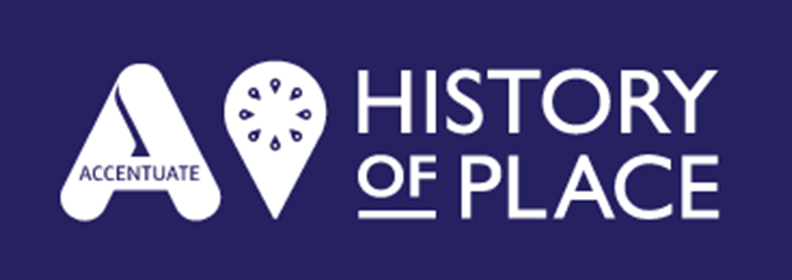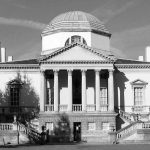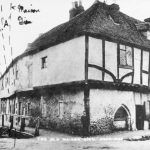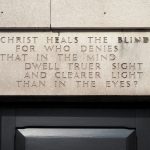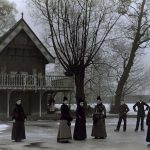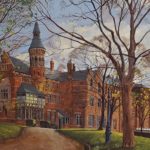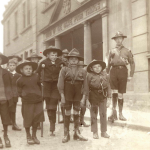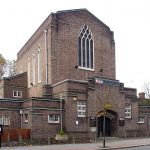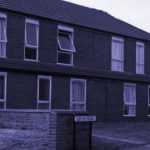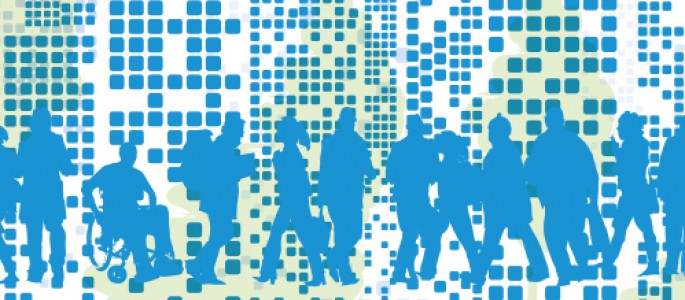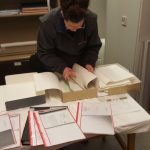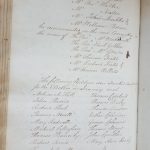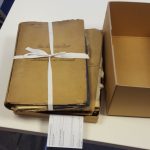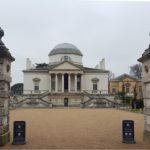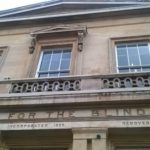Booking open – get tickets on the Festival of the Future City website here.
Scroll for full programme
If you come to this symposium expecting traditional power-point presentations and panel debates you will be in for a surprise; instead experience creative happenings, visits by robots and an opportunity to be part of a Cultural Animation installation work.
This special all-day event brings together academics and community partners to expose and explore the often absent voices of disabled people in our collective history as well as our future planning. Find out about the process for engaging local people in research for a new exhibition at M-Shed and the crucial role creative interpretation, digital gaming and new technologies play in giving disabled people a voice in reclaiming their history and their future.
They will be performing a work in progress which uncovers the defiant voice of Fanny Fust, a young heiress with learning disabilities who lived in Bristol in the 18th C who was abducted by a fortune hunter, and whose case made legal history in establishing a precedent for the care of vulnerable individuals.
During our research to support a new exhibition at MShed ‘Brave Poor Things’ we have discovered how challenging it is to hear the voices of the disabled people as many of the records are written from the perspective of Founders and Trustees. This symposium will show the crucial role creative interpretation has played in giving disabled people a voice in reclaiming this history.
The mission of Ada Vachell, Founder and ‘gatekeeper’ of the Guild of the Brave Poor Things was to ‘save people’, however the boys from the Guild just wanted to enjoy their life like other boys in the city. Could their rather dubious motto ‘Happy In Our Lot’ actually be redefined and reclaimed for the future, to rebel against the continuous drive to ‘cure’ or ‘eradicate’ disability/people?
Learning from the past to imagine future cities
We will also ask the wider ethical questions as to whether technological progress offers us both a utopian and dystopian future and what are the methods we can adopt to ensure disabled people are the gatekeepers of their own futures?
We will explore who has been historically and currently disregarded, left out, or silenced and how can we make sure through our ‘collabatory’ work when thinking about future cities, that these voices are not lost or overlooked in planning and design, or in the way people are valued. We will consider how we can create/make space which connects and is occupied not by the “them and us” but by the ‘we’.
Kidnapped by fortune hunters
Openstorytellers are a company of storytellers who have learning and communication disabilities. They explore stories about characters with disabilities, in history and legend. Their aims are: to reclaim the history of disability in society; to challenge stereotypes (like the “silly” or “village idiot”) and to develop understanding of the links between past and present issues confronting people with disabilities. They will be performing a work in progress which uncovers the defiant voice of Fanny Fust, a young heiress with severe learning disabilities who lived in Bristol in the C18th who was abducted by a fortune hunter, and whose case made legal history in establishing a precedent for the care of vulnerable individuals.
Robotics, utopias and dystopias
We will explore how new technologies can help disabled people to be ‘present’ and ‘visible’ experiencing and interacting with environments they might otherwise not have access to. We will also ask the wider ethical questions as to whether technological progress offers us both a utopian and dystopian future and what are the methods we can adopt to ensure disabled people are the gatekeepers of their own futures?
Access
There will be BSL interpreters and captioning available, the building is wheelchair accessible and there will be guides available for any attendees with a visual impairment. Please get in touch or contact the venue directly if you have any further access requirements or concerns.
Full Programme
10 – 10.30 am arrivals and coffee – visit the exhibition Brave Poor Things: Reclaiming Bristol’s Disability History
10.30am – Welcome and Opening Remarks – Esther Fox, Head of the Accentuate Programme, Screen South.
10.40am Grace Swordy introducing History of Place in Bristol, the ways we engaged local people to explore the history of their city, in particular the absence of disabled people’s voices in the archive record and how digital gaming and film making workshops have given disabled people a voice in re-interpreting this heritage.
11.10 – 11.20 Questions
11.20 – 11.40 Comfort break and opportunity to play the Brave Poor Things Game/visit Exhibition
11.40 – 12.00 Sue Moffat Director of Borderlines New Vic Theatre Stoke – Exploring Cultural Animation – how theatre and play can give communities a voice and presence in expressing issues pertinent to them.
12.00 – 12.10pm Questions and opportunity to move into the “collaboratory”
12.10 – 1.30pm Lunch and opportunity to take part in the “collaboratory” and view exhibition
1.30 – 2.05pm Openstorytellers – ‘The Fortunes and Misfortunes of Fanny Fust: an 18th Century Adventure Story’ explores the life of a young heiress with learning disabilities who lived in and around Bristol in the 18th century, and was abducted for marriage. Her story is tumultuous and resonates with many issues that people with learning disabilities still face today. They will present what they have learned by researching together – and a “Commission of Lunacy”.
2.05pm – 2.25 Dr Sue Ledger from The Open University and Dr Nicola Grove from The OpenStoryTellers will explore contemporary issues of consent and finding ways for all members of society to participate in their cultural heritage’
2.25 – 2.35 Questions
2.35 – 3.05 Dr Praminda Caleb-Solly- Associate Professor in Independent Living Systems – Bristol Robotics Laboratory, UWE and Designability will demonstrate the ways in which new technology offers the potential for greater agency and presence for disabled people via telepresence. This session will be co-produced and presented with Miro Griffiths MBE, from Liverpool John Moores University
3.05 – 3.15pm Questions
3.15 – 3.20 – closing remarks Esther Fox, Head of the Accentuate Programme, Screen South.
3.20 – 4pm Tea/ Coffee final opportunity to see exhibition, play game, explore “collaboratory”
4pm close.
